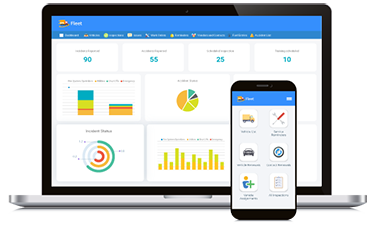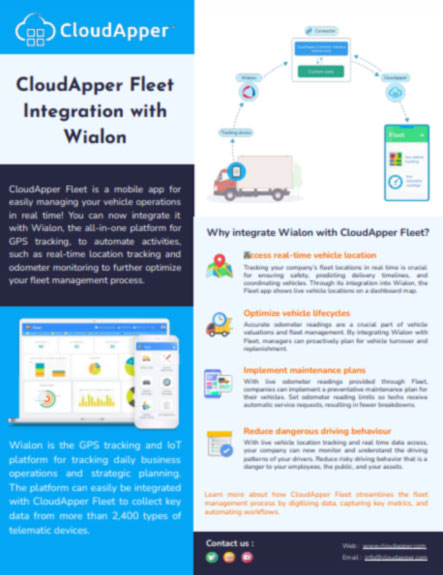Table of Contents
A fleet manager is a logistics manager who may work for any company that utilizes a fleet of vehicles for their business. Fleet managers may indeed work for dealerships, but they also may work for car rental companies, delivery companies, gas companies, or any business that relies on vehicles for profitability. A fleet manager is responsible for ensuring that all of the drivers are properly scheduled. A few of the main duties of a fleet manager are scheduling maintenance on vehicles, complying with driving regulations, training new employees, and purchasing new company vehicles. To accomplish the duties, it is important for a fleet manager to have few skills. Such as,
- Customer Service Skills
- Transportation Knowledge
- Maintenance basics
- Diversity & Inclusivity
- Safety knowledge
- Process-Oriented workflow
- Financial knowledge
Fleet management is essential to a smooth operating fleet of vehicles, no matter the size. Tracking the location and condition of the vehicles, maintenance schedules, and fuel usage help manage costs and keep the equipment working longer.
Challenges faced by a fleet manager
Route Optimization
Commercial fleet services utilize their vehicles on numerous routes to fulfill a variety of purposes. They have to use ways that are shorter and safer for maximum effectiveness. Sometimes, drivers make illegal use of fleets ‘ services. They travel long distances to get their personal work accomplished. They could also use shorter routes to save time, but that might not always be secure. The optimization of the routing problem results in the situation that we are going to address next.
Excessive Fuel Consumption
If drivers drive for longer distances, they are expected to use more fuel. We’ve also seen instances that fleet managers are reported by drivers more than their actual fuel expenditure. A fleet manager also needs to budget for the possible price hike of fuel. It is essential to make sure that the budget is precise.
Managing Communication
A Fleet manager must maintain many communication channels with his employees, drivers, customers, and other stakeholders. It isn’t easy to manage all the communication in different media. Also, when the drivers are out on the road, the manager can not text or call them, as direct contact might distract them. Every fleet manager needs an alternate platform that can notify them about their whereabouts.
Time Management
The fleet manager has to do some administrative tasks regularly. For example, they are maintaining customer databases, issuing vouchers, invoicing, scheduling maintenance. Previously managers had to do all these tasks manually. A digital platform is essential for fleet manager to save their time on something more worthwhile.
Risk Management
Road accidents can destroy the whole reputation of the company. It puts all the parties involved in the industry at risk, including the manager, driver, customer, or victim. However, nothing can stop unwanted incidents. A fleet manager can lessen the probability of it at least through risk management. He has to get his insurance done on time, assure fleet traceability, and find safe routes.
Conclusion
Implementing a fleet management program will resolve all of these issues at one time. First, a fleet manager can regularly monitor dispatch-arrival times to design an efficient route plan for drivers. Additionally, if the manager owns a well-planned route plan, they can monitor drivers’ behavior. A well-planned route and driver’s behavior can help maintain a fuel budget. The third reason is that a fleet management system will simplify administrative tasks. Managers do not have to devote a lot of time logging into registers. Additionally, it lowers the risk of accidents. Risk. When there is an accident or any other kind of emergency, a fleet management system will also reduce the time required to get assistance. Some fleet management systems will automatically inform the driver of the risk and are minimized. CloudApper’s Fleet can merge numerous kinds of services for the enhancement of the fleet’s services.
What is CloudApper AI Platform?
CloudApper AI is an advanced platform that enables organizations to integrate AI into their existing enterprise systems effortlessly, without the need for technical expertise, costly development, or upgrading the underlying infrastructure. By transforming legacy systems into AI-capable solutions, CloudApper allows companies to harness the power of Generative AI quickly and efficiently. This approach has been successfully implemented with leading systems like UKG, Workday, Oracle, Paradox, Amazon AWS Bedrock and can be applied across various industries, helping businesses enhance productivity, automate processes, and gain deeper insights without the usual complexities. With CloudApper AI, you can start experiencing the transformative benefits of AI today. Learn More



























